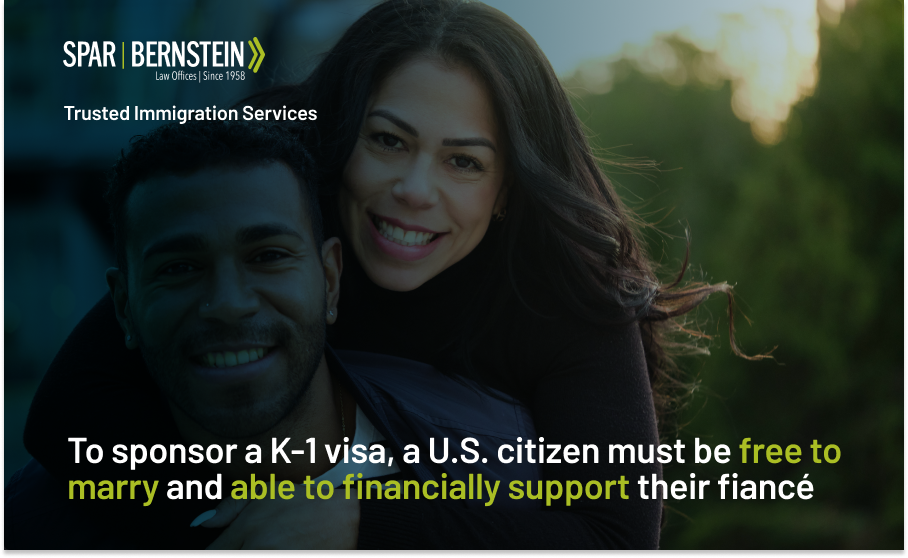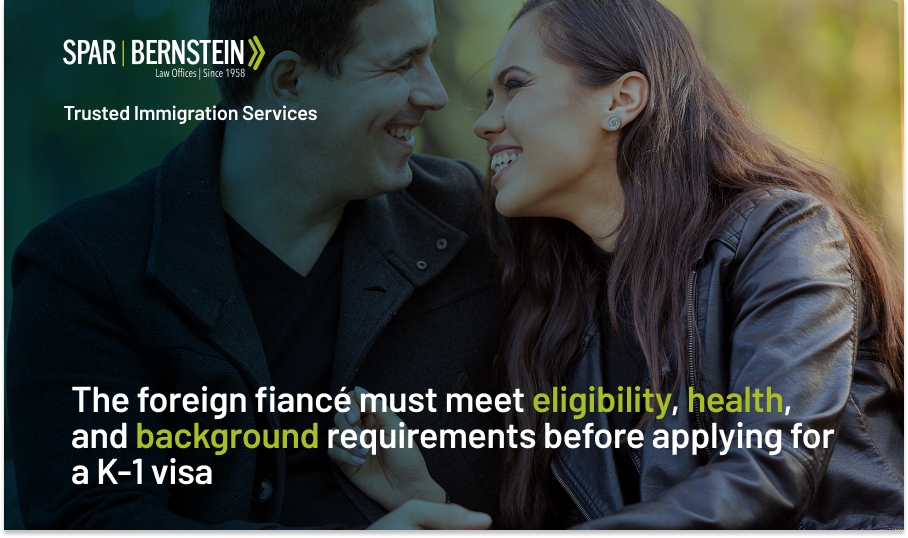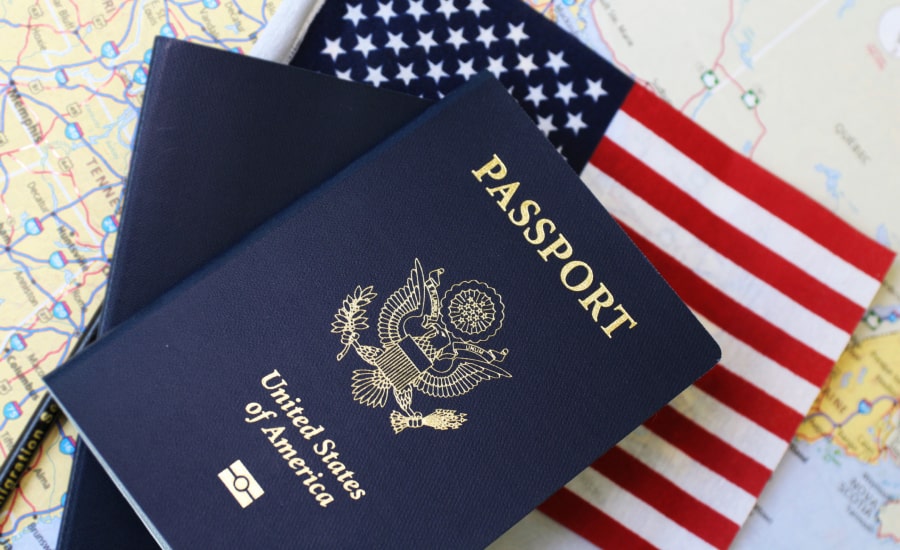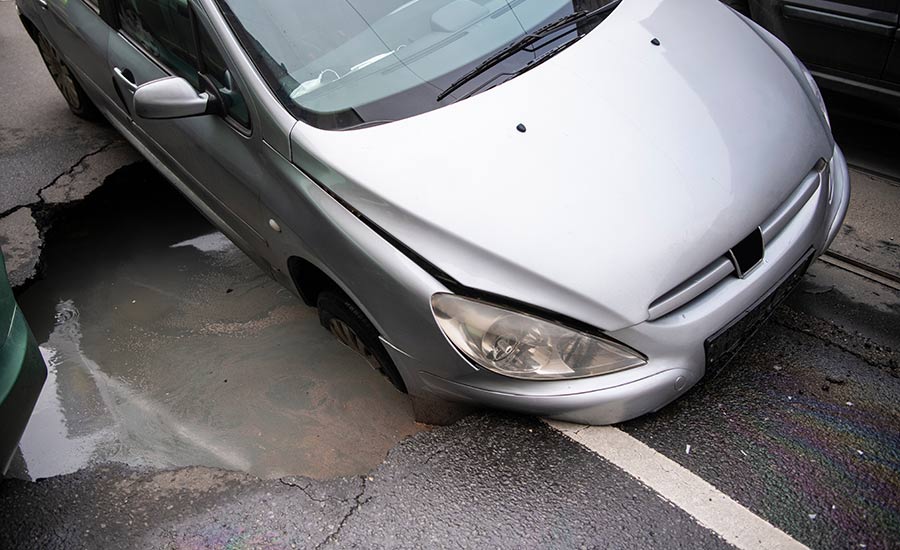

K-1 Visa Requirements: Key Takeaways
- The K-1 visa is designed for foreign fiancés of U.S. citizens who plan to marry within 90 days of arrival
- The U.S. sponsor must be a U.S. citizen, legally free to marry, and meeting the financial income requirement
- The foreign applicant must live abroad, be eligible to marry, meet health and background requirements, and have met their U.S. partner in person within the past two years
- The application process includes filing Form I-129F, followed by processing at the National Visa Center and a U.S. Embassy interview
- Processing time for a K-1 visa varies from 7 to 34 months depending on the USCIS service center
If you are a U.S. citizen engaged to someone living abroad or a foreign fiancé planning to marry a U.S. citizen, you’ll need to apply for a K-1 visa to unite in the United States and get married.
In this guide, we’ll outline:
- K-1 visa requirements for sponsor and applicant
- How to apply for a K-1 visa
- What supporting documents to use
K-1 Visa Requirements For A U.S. Sponsor
U.S. citizens who want to sponsor a fiancé must meet a few key requirements
- You must be legally free to marry, which simply means you’ve finalized all past marriages.
- You must have an income that meets or exceeds 100% of the most recent U.S. Federal Poverty Guidelines.

K-1 Visa Requirements For An Applicant
To apply for a K-1 visa, the foreign fiancé must:
- Live outside of the U.S.
- Be legally eligible to marry.
- Have a clean criminal record.
- Pass a medical check (nothing extreme, just standard immigration health clearance).
As an additional requirement, you and your fiancé must have met in person at least once within the two years preceding the visa petition filing, with limited exceptions based on cultural or hardship considerations.

Understanding The K-1 Visa
A K-1 visa, also known as a fiancé visa, is a nonimmigrant visa that allows a U.S. citizen to act as a sponsor for their foreign fiancé in order to bring their partner to the U.S. to get married.
If you and your fiancé are planning to tie the knot soon after they arrive in the U.S., the K-1 visa is made just for you.
A K-1 visa automatically expires after 90 days and it cannot be extended. To remain in the country, the foreign spouse must apply for an adjustmeent of status to become a lawful permanent resident (Green Card holder) after the marriage takes place.
How To Apply For A K-1 Visa
If you’re ready to start the K-1 journey, here’s how to move forward.
1. The US Sponsor Files A Petition
The process begins with the U.S. citizen filing Form I-129F, Petition for Alien Fiancé(e) with U.S. Citizenship and Immigration Services (USCIS), showing their intention to marry their foreign fiancé.
- Once the petition is submitted, USCIS will send a receipt and in some cases request additional documents. If the petition is approved, USCIS will notify the foreign fiancé and forward the case to the National Visa Center (NVC).
- The NVC will conduct preliminary processing and collect fees and supporting documents.
- Then the NVC will process the application and send it to the U.S. Embassy or Consulate in the applicant’s home country.
- The Embassy or Consulate will notify the foreign fiancé to complete required forms, prepare necessary documents and undergo a medical examination. Their representatives will also inform the applicant when and where to attend a visa interview. The applicant may be asked to provide answers to questions from a list of K-1 visa questions.
2. The Foreign Fiancé Completes Form DS-160
Once the fiancé receives the notice from the Embassy or Consulate, they must file Form DS-160, Nonimmigrant Visa Application.
3. The Fiancé Attends An Interview
The next step is going to the U.S. Embassy or Consulate for the visa interview. At the interview, a consular officer will take a close look at the K-1 visa application and ask about the relationship of the couple to confirm it’s the real deal.
If the application is approved, the fiancé will receive a K-1 visa.
4. The Fiancé Travels To The United States
After the K-1 visa is approved, the fiancé must arrive in the U.S. within six months. Timing really matters here.
5. The Couple Gets Married
The partners must marry within 90 days of the fiancé’s entry into the U.S.
6. The Fiancé Applies For An Adjustment Of Status
After the marriage, the fiancé can apply for an adjustment of status. To do this, they need to file Form I-485, Application to Register Permanent Residence or Adjust Status to become a Green Card holder.
Each step of the K-1 visa application process involves specific forms, fees and additional documentation. That’s why partnering with an experienced immigration attorney is important.
Documents You Need To Apply For A K-1 Visa
To apply for a K-1 visa, you will typically be required to submit:
- The confirmation page provided after filing Form DS-160, Nonimmigrant Visa Application
- Evidence of relationship with a U.S. citizen, such as photographs together, evidence of in-person meetings or communication records
- Proof of the sponsor’s U.S. citizenship, such as a birth certificate, a U.S. passport or certificate of naturalization
- Your birth certificate
- Police certificates from your country of residence or any other country where you have lived for more than six months
- A medical examination report by an approved physician to prove that you meet the health requirements
- Evidence of financial support to show that the U.S. citizen can support you, such as employment verification documents, bank statements or tax returns
- A valid passport
- Two passport-style photographs of yourself, following specific requirements
- One passport-style photo of the sponsor
- Divorce or death documents if you were previously married
Depending on the specifics of your case, you may be required to submit additional documentation. A knowledgeable immigration attorney can help you determine which documents are needed for your application and help you apply for your K-1 visa.
K-1 Visa Processing Times
Depending on the field office or service center, it will take USCIS between seven and 34 months to process your K-1 visa petition.
The estimated time is based on the processing times for 80% of the same cases over the past 180 days.
To check the status of your petition, visit the Case Status page on the USCIS website and enter your receipt number.
Need Help With A K-1 Visa? Talk To Spar & Bernstein
Founded in 1958 and specializing in immigration law, including marriage-based visas, family immigration, and citizenship and naturalization, our attorneys at The Law Offices of Spar & Bernstein have helped thousands of people reunite with their loved ones and remain legally in the U.S.
Always up to date with the ever-changing immigration laws and regulations, our experienced attorneys are here to provide guidance and support throughout your K-1 visa application process.
We will meticulously review your case, ensuring that all required documents are in order and that your application meets K-1 visa requirements.
From filing your petition to preparing you for consular interviews, our knowledgeable lawyers will guide you through each step, allowing you to maintain peace of mind knowing that your K-1 visa application is in capable hands.
Once you obtain your K-1 visa and join your partner in the U.S., we will help you navigate the intricacies of the adjustment of status towards getting your Green Card.
FAQs About K-1 Visas
Can a lawful permanent resident petition for a K-1 visa?
No, only U.S. citizens are eligible to petition for a K-1 visa. Green Card holders must follow different visa processes for their fiancé. Contact our immigration team at Spar & Bernstein to get more information about your options.
Can I work in the U.S. on a K-1 visa?
To legally work after entering the U.S. on a K-1 visa, you must apply for a work permit (employment authorization). To do this, file Form I-765, Application for Employment Authorization.
What will happen if we don’t get married within 90 days?
If you do not marry within the 90-day period, you must depart the country. Failure to do so may result in immigration violations and could impact your future visa applications.
Can I bring children to the U.S. on a K-1 visa?
Yes, if you have unmarried children under the age of 21, they may be eligible to accompany you to the U.S. on a K-2 visa, which is linked to the K-1 visa.
Can I apply for a K-1 visa if I was previously married?
Yes, previous marriages do not disqualify you from applying for a K-1 visa. However, you must provide evidence of termination of any prior marriages, such as divorce decrees or death certificates.
Can I get married outside the U.S. on a K-1 visa?
The purpose of the K-1 visa is for the couple to marry within the U.S. If you marry outside the U.S., you will need to apply for a different visa category or process.





